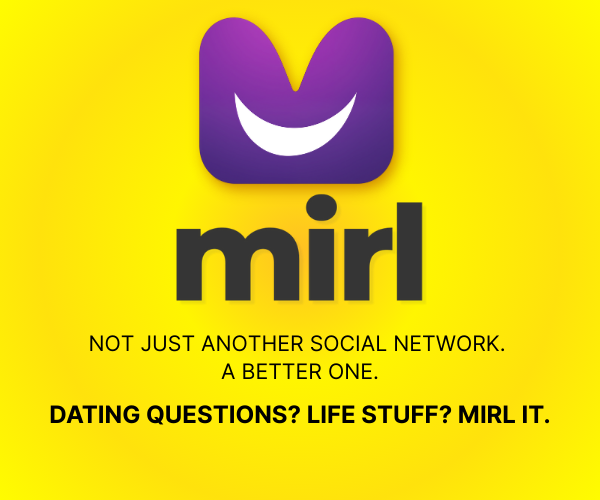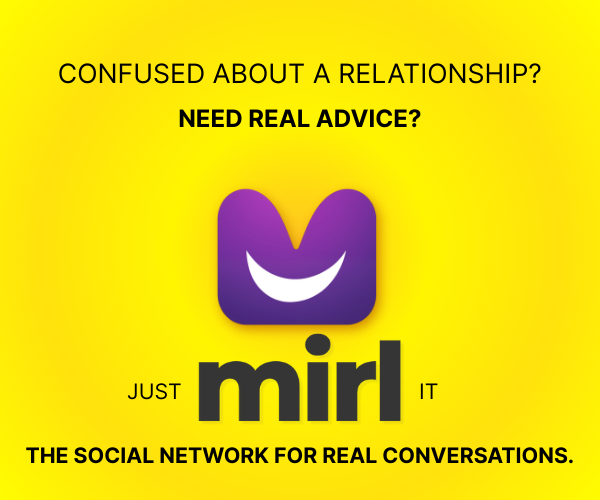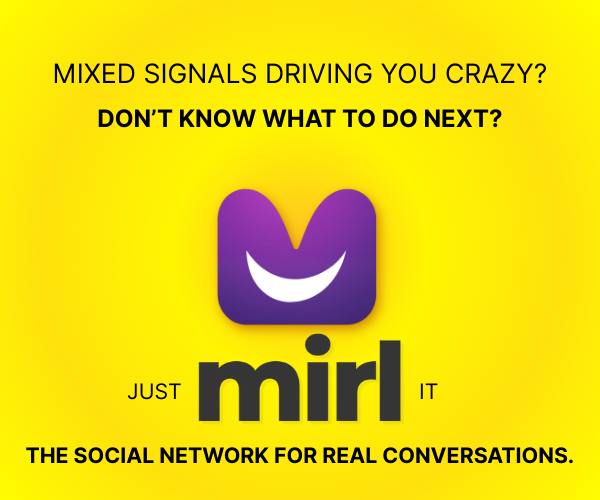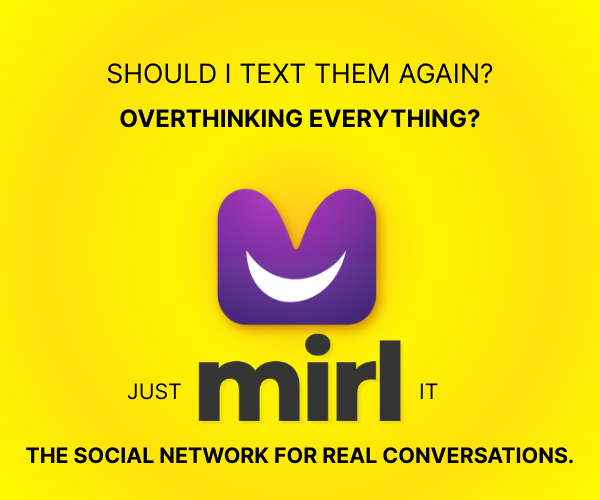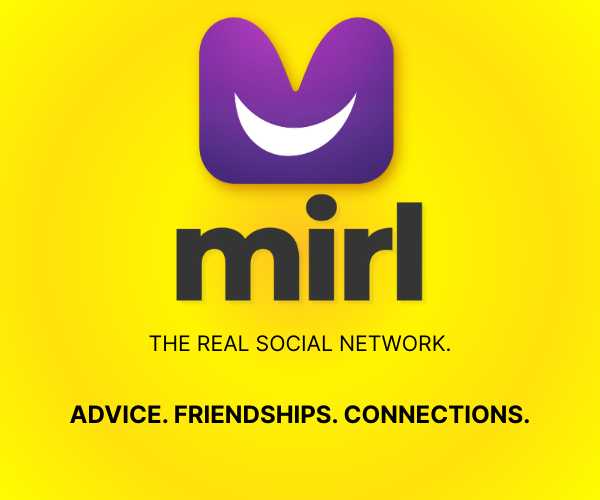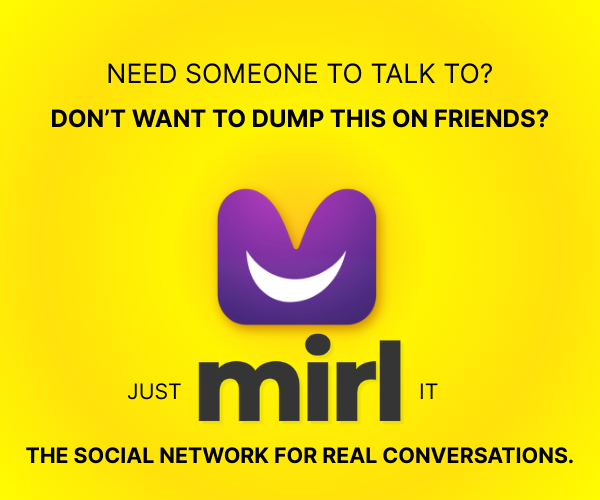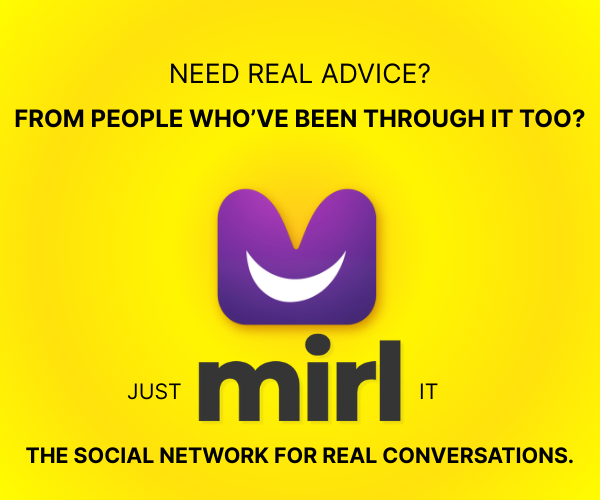What Is Serial Monogamy: How It Works & 35 Signs of a Serial Monogamist

Is serial monogamy a norm or are humans just strange? Learn the pattern and signs of a serial monogamist in a relationship to find out if you’re one!
Wondering what exactly is serial monogamy? Are you the type who just needs to be in a relationship? The kind who jumps heart-first into love, only to leap out and into the next one as soon as the spark starts to fizzle? If you’ve ever thought, “Wow, I’ve barely had time to be single since high school,” then you might just be a serial monogamist.
And hey, before you start spiraling, being one doesn’t make you toxic or broken. But it does mean it’s time to understand the psychology behind that relationship pattern.
So let’s break it all down: what serial monogamy actually is, what drives it, the signs you might be one, and whether this love style is serving you, or slowly sabotaging your chance at deep intimacy.
[Read: Monogamous Relationship: What It Is, 51 Signs & Ways to Be Happy in Monogamy]
What is Serial Monogamy?
At its core, serial monogamy means you’re always in a relationship. You move from one committed partner to the next with barely any gaps in between, but you’re always exclusive with each partner.
No cheating, no flings, no long dry spells. Just a string of emotionally intense, serious relationships that almost feel like mini-marriages.
So what makes it different from healthy dating?
It’s the pattern. Serial monogamists:
- Rarely stay single for long
- Fall in love quickly and often
- Tend to get serious fast (think: “I love you” by week two)
- Leave when the excitement fades
The intention is genuine, but the underlying psychology? That’s where things get interesting, and a little more complicated.
Why Do Some People Become Serial Monogamists?
It’s not just bad luck or a “romantic soul” thing. Serial monogamy is usually tied to deeper emotional patterns rooted in attachment styles, fear, and how we were taught to relate to others.
[Read: Attachment Styles Theory: 4 Types and 19 Signs & Ways You Attach To Others]
Sometimes it starts early. Maybe you grew up in a home where love was unpredictable or conditional, and now you’re chasing connection to feel safe.
Or maybe you’ve had a few intense breakups and now the idea of being alone is like trying to breathe underwater, suffocating and scary. Here’s a breakdown of the deeper reasons behind the pattern:
1. Anxious-Preoccupied Attachment Style
People with this attachment style crave closeness but fear abandonment. They jump into relationships to avoid feeling alone, and rely on their partner for emotional stability.
Instead of seeing a relationship as a place to share your life, it becomes the place you survive emotionally.
📚 Source: Hazan & Shaver (1987), Romantic Love Conceptualized as an Attachment Process
2. Fear of Being Alone
You’re not just uncomfortable with silence. Being alone feels unbearable. Some serial monogamists would rather stay in a mediocre or even unhappy relationship than face an evening alone.
Research shows that people with high “singlism intolerance” are more likely to jump quickly into new relationships, not out of love, but out of avoidance. [Read: Unhappy Relationship: 25 Traits of Sad Love & Lies You Tell Yourself]
📚 Source: Spielmann et al. (2013), Intolerance of being single predicts seeking a new partner post-breakup
3. Addiction to the Honeymoon High
Falling in love is a rush, literally. Dopamine, oxytocin, serotonin flood your brain and make everything feel magical.
For some, that high becomes addictive. They crave the intoxication of new love, and once that fades, they confuse the calm of stability with boredom and bail to chase the thrill again.
📚 Source: Fisher et al. (2005), Romantic love: A mammalian brain system for mate choice
4. Idealized Notions of Love
If you’ve grown up binge-watching fairytales, Nicholas Sparks films, or constantly comparing your relationship to the highlight reels on Instagram, you might believe love should always feel perfect.
So when real life hits, conflict, stress, awkward silences, you think it must not be “true love.”
📚 Source: Sprecher & Metts (1989), Romantic Beliefs Scale
5. Low Self-Esteem & Validation Seeking
This one’s huge. When you don’t feel worthy on your own, being desired by someone else can temporarily fill that void.
But it becomes a cycle, you need someone to want you to feel okay. And when that validation fades (as it naturally does in every relationship), you jump to the next one to feel whole again.
It’s not about love, it’s about needing someone to see you because you struggle to see your own worth.
If you’ve ever felt more lovable when you’re “chosen” or “taken,” this one might hit home.
[Read: Why Am I So Insecure? 41 Signs & 51 Ways to Deal with Insecurity & Fix It]
Are You a Serial Monogamist or Just Dating the Wrong Person?
There’s a difference between being a serial monogamist and being someone who simply hasn’t found the right match. Let’s clear up the confusion.
If you’ve dated a few people seriously, broken up because of misalignment in values or incompatibility, and spent time in between reflecting or growing, then no, you’re probably not a serial monogamist.
What distinguishes serial monogamy is the cycle. It’s not about failed relationships, it’s about the compulsion to be in one all the time, no matter how mismatched the partner is, or how short the gap between partners.
Ask yourself:
- Do you jump into a relationship to avoid loneliness?
- Do you fall hard before really getting to know someone?
- Do you rush into exclusivity out of fear or pressure?
If not, then maybe you’re just dating with hope and intention. And there’s nothing serial about that.
[Read: Monkey Branching: What It Is & 33 Signs You’re Being Branched for Someone Else]
The Pros of Serial Monogamy
Yes, it has some upsides. Especially if:
1. You genuinely value connection and intimacy
You’re not here for casual flings. You want emotional depth and you’re willing to show up for it. Unlike people who ghost or orbit, you’re not afraid of being vulnerable, just maybe a little too eager to find that connection.
2. You’re committed and faithful
Loyalty means everything to you. Even if things don’t last forever, you give your partner your full attention and heart while you’re with them. You’re not juggling people or playing games.
3. You learn a lot about what you want in a partner
With each relationship, you refine your understanding of compatibility, red flags, and what actually matters to you. Think of it like emotional user-testing, you get data, and you evolve.
4. You build emotional resilience
Breakups may hurt, but you’ve learned how to bounce back. You’ve developed thick skin and a tender heart, two things that don’t often coexist. And because you’re not afraid to feel, you grow through what you go through.
The Cons of Serial Monogamy
…but there’s a darker side:
1. You avoid emotional discomfort
Relationships become your coping mechanism. Instead of sitting with loneliness or facing internal issues, you distract yourself with a partner. It’s soothing… until it’s not. [Read: Dating Someone with Low Self-Esteem: What It’s Like for Both of You]
2. You miss out on self-discovery
When you’re constantly merging your life with someone else’s, it’s hard to know who you really are. You don’t get the chance to cultivate your own identity outside the lens of romance.
3. You form unhealthy dependency loops
Your self-worth becomes tethered to whether you’re desired or loved. Without a partner, you might feel aimless, lost, or “not enough.” That’s emotional dependency, not intimacy. [Read: Emotional Dependency & 20 Signs You’re Overly Dependent on Someone]
4. You might repeat toxic patterns
Jumping from one relationship to the next without time to reflect means the same issues keep popping up: emotional avoidance, poor boundaries, idealization. Different face, same heartbreak.
The Subtle Signs You’re a Serial Monogamist
So how do you really know if you’re a serial monogamist and not just someone who loves love? It’s not about how many people you’ve dated, it’s about the patterns you keep repeating.
These signs dig deeper than just “you date a lot.” They reflect how you approach connection, loneliness, identity, and romance.
If you relate to many of these, it might be time to pause and ask what you’re really looking for in love.
1. You jump into relationships quickly
You don’t waste time testing the waters. Once you feel that spark, you’re in, texting constantly, calling them your partner within weeks, and already fantasizing about shared holidays.
To outsiders, it feels rushed. To you, it feels like destiny wrapped in dopamine.
You crave instant intimacy because it makes everything else, loneliness, uncertainty, disappear.
2. You hate being single
Even the idea of being alone makes your skin crawl. While some people see singlehood as freedom, you see it as a personal failing.
You struggle to enjoy your own company without feeling like something’s wrong. You’re most comfortable in the comfort of someone else’s affection, like your worth is tethered to being wanted.
[Read: 42 Secrets to Be Happy Being Single & Alone and Lessons It Can Teach You]
3. You label things “official” fast
You move through the “what are we?” stage like it’s a race. Labels make you feel secure, so you rush into exclusivity before you’ve even processed compatibility. The title isn’t about defining love, it’s about easing your anxiety.
4. You romanticize every new partner
You fall for the idea of them. You’re quick to imagine a future with someone after a good conversation or a few flirty texts.
You skip over the red flags because the fantasy is just too sweet to let go of. Reality becomes an inconvenient truth you deal with later, often too late. [Read: 45 Big Relationship Red Flags Most Couples Completely Ignore Early in Love]
5. You feel empty without a partner
You crave love the way some people crave oxygen. When you’re single, the world feels dimmer, your routine less meaningful.
Your self-worth is tied to whether or not you’re being loved by someone else. Without a partner, you feel like you’ve lost your role in the world.
6. You fear long-term commitment… but crave it too
You dream of finding “your person,” but once things start feeling real, future planning, emotional vulnerability, you pull back.
You want the destination but fear the permanence. It’s like standing on the edge of a cliff: beautiful, thrilling, and terrifying all at once.
7. You confuse infatuation with love
Butterflies, late-night texting, and intense physical chemistry? That’s your sweet spot. But you often equate that rush with real emotional intimacy.
When the honeymoon phase ends, you assume the love has too, so you start chasing that feeling again with someone new. [Read: Infatuation: The Definition, How to Break Out & 47 Signs You’re Deeply Infatuated]
8. You rebound quickly after breakups
You don’t give yourself time to grieve or process. There’s always someone new on the horizon, sometimes already in your inbox before the last chapter has closed.
Your coping strategy is to skip the loneliness stage entirely and jump straight into new affection.
9. You always seem to find “the one”… until the next one
Each new love feels like the love. You tell your friends, “This is different,” and you genuinely believe it.
But the pattern keeps repeating: once the novelty wears off or the first real conflict arises, you’re gone, or already falling for someone else. The highs never last, but the chase does.
10. You have little downtime between partners
You don’t do “relationship detox.” Whether it’s a few days, weeks, or a rebound that barely feels like a pause, you’re rarely single long enough to reconnect with yourself.
You go from one emotional entanglement to the next like a Netflix binge, with no chance to breathe or reflect.
11. You build your identity around the relationship
When you’re in love, your partner becomes your everything, your hobby, therapist, motivator, and even sense of purpose.
You start molding yourself to fit the relationship, often losing sight of your personal goals and connections. Without a partner, you feel like a character with no storyline.
12. You idealize relationships as the solution to your problems
A new partner feels like a reset button. You believe the next relationship will “fix” your loneliness, boost your confidence, or help you heal from the last one.
But relationships aren’t therapy, they reflect what you bring into them.
📚 Source: Knee et al. (2003), Implicit theories of relationships and coping with relationship stress
[Read: Relationship Stress: How It Feels, 38 Signs & Best Ways to Fix It as a Couple]
13. You avoid uncomfortable emotions by jumping into love
Instead of sitting with heartbreak, fear, or insecurity, you bury it under a new romance.
Love becomes your emotional painkiller. But unprocessed pain doesn’t disappear, it just sneaks into the next relationship wearing a different face.
14. Your relationship timelines are short but intense
You go from zero to soulmates in weeks. The emotional intensity is intoxicating, but the depth often never truly forms.
Your love stories burn fast and bright, then out. There’s rarely a slow build, just a dramatic entrance and a sudden exit.
15. You confuse closeness with intensity
You equate high drama, passion, and chaos with closeness. If there aren’t fireworks, you assume something is missing. But real connection isn’t always wild, it can be stable, consistent, even quiet.
📚 Source: Aron & Aron (1996), Self-expansion model of close relationships
16. Your friends can’t keep track of who you’re dating
You’ve introduced so many “this one’s the one” partners that your friends just raise their eyebrows and play along.
It’s not that they don’t support you, it’s just that your romantic timeline has turned into a highlight reel they can’t keep up with.
17. You feel guilty or ashamed when single
You carry shame about being alone, as if singleness is a flaw. You may even avoid events, post less on social media, or withdraw during these times. Instead of embracing solitude, you treat it like a phase you have to escape.
18. You constantly crave romantic validation
You need ongoing proof that you’re desirable, lovable, and wanted. Compliments, attention, and reassurances aren’t just nice, they’re essential.
Even in healthy relationships, you might worry if your partner seems emotionally distant or stops texting back fast enough. [Read: 38 Signs & Traits of a Happy, Healthy Relationship & What It Should Look Like]
19. You make decisions around your partner, fast
You’ll rearrange your weekend, your goals, or even your job to prioritize someone you’ve just started dating. You attach deeply, quickly, and often prioritize the relationship over your own autonomy, without even realizing it.
20. You’re great at first impressions, but struggle with long-term depth
You know how to charm and connect right away. You’re exciting, magnetic, and passionate. But sustaining intimacy, especially when things get mundane or hard, feels harder. You might disappear emotionally once the novelty wears off.
21. You fear being forgotten or replaced
There’s an underlying fear that without a romantic partner, you’re invisible. You worry that someone new could “take your place” in your ex’s life, or that you’re not memorable without being romantically linked to someone.
22. You ignore gut feelings and red flags early on
You sense when things are off, but you don’t want to ruin the fantasy.
You excuse toxic behaviors or incompatible values because you’re more afraid of being alone than being unhappy. You trade short-term comfort for long-term clarity.
23. You’ve started to wonder if you’re addicted to love itself
You’ve noticed the cycle. You’ve asked yourself, “Why do I keep doing this?” You suspect it’s not just about finding the right person, it’s about finding emotional safety, purpose, and peace in yourself first. [Read: Finding the Right Person? 43 Truths & Signs You’ve Met the One For You]
📚 Source: Fisher et al. (2016), Addiction to love: What the science says
Can Serial Monogamy Be Healthy?
It absolutely can, if it’s intentional. There’s a huge difference between consciously choosing relationship-after-relationship because it aligns with your values, versus unconsciously repeating a cycle out of fear, avoidance, or emotional dependency.
If you’re someone who enjoys companionship, learns from past relationships, and takes time to grow in between, serial monogamy doesn’t have to be a red flag.
It’s a love style, not a pathology.
In fact, some people thrive in this rhythm and develop deep relational intelligence from loving multiple people over time.
But if your pattern is about avoiding loneliness, patching over unhealed wounds, or constantly chasing the highs of new love, then the relationship carousel might be doing more harm than good. Especially if you’re losing your sense of self, cycling through the same emotional issues, or leaving a trail of emotional fallout in the process.
key question to ask: Am I choosing this pattern from a place of wholeness or from a place of fear?
If you’re unsure, it might be time to pause and reflect. And if you feel ready to break the pattern, here are some strategies that actually work.
How to Break the Pattern (If You Want To)
1. Take a break between relationships
Even just a few months of singleness can reset your nervous system and help you reconnect with your inner voice.
It’s not about punishing yourself, it’s about creating space to feel, reflect, and grow. Try to sit with your discomfort instead of racing past it.
2. Therapy, therapy, therapy
Especially the kind that helps you understand your attachment style, self-worth, and love scripts.
Attachment-based therapy or psychodynamic therapy can help you unpack the “why” behind your patterns so you can start choosing instead of reacting.
📚 Source: Bowlby, J. (1988), A Secure Base: Parent-Child Attachment and Healthy Human Development
3. Get comfortable being alone
Learn to do things solo, meals, movies, hobbies, even travel. Build a relationship with yourself that feels nourishing, not lonely. When you become your own emotional home, relationships stop being your escape plan.
4. Date slowly and consciously
Don’t rush into exclusivity just to feel secure. Let the relationship unfold.
Observe how you feel, how they communicate, and how both of you handle emotional intimacy. Conscious dating builds real compatibility, not just chemistry.
5. Develop a life outside of relationships
Invest in your passions, friends, and goals. The more full your life feels without a partner, the more likely you’ll choose someone who adds to your joy, not becomes your entire source of it.
6. Challenge your beliefs about love
Love isn’t supposed to fix you or save you, it’s supposed to meet you where you are. That might mean rewriting the scripts you learned from childhood, movies, or past relationships.
Real love isn’t just butterflies, it’s presence, safety, and growth.
📚 Source: Sternberg, R.J. (1986), A triangular theory of love
Breaking a pattern doesn’t mean giving up on love, it means reclaiming it in a healthier, more honest way. If serial monogamy is your norm, and you’re happy and growing, that’s beautiful.
But if you’re starting to feel stuck in the same loop, these steps can help you rewrite your love story, with more clarity, confidence, and choice. [Read: Giving Up on Love: 20 Practical Reasons Why It’s Not The Right Answer]
Is Serial Monogamy Bad?
Not at all. It’s just a pattern, but like any pattern, it can either serve you or sabotage you. If you’re hopping from heart to heart without a breather in between, maybe it’s time to hit pause and ask yourself: what am I really looking for?
Love is beautiful. But so is learning to love yourself outside of it.
[Read: Emotional Attachment: How It Works & 34 Signs You’re Getting Attached & Close]
So… are you a monogamist in search of emotional depth, or a serial monogamist searching for your next fix? Your answer to serial monogamy could just change the way you love forever.

